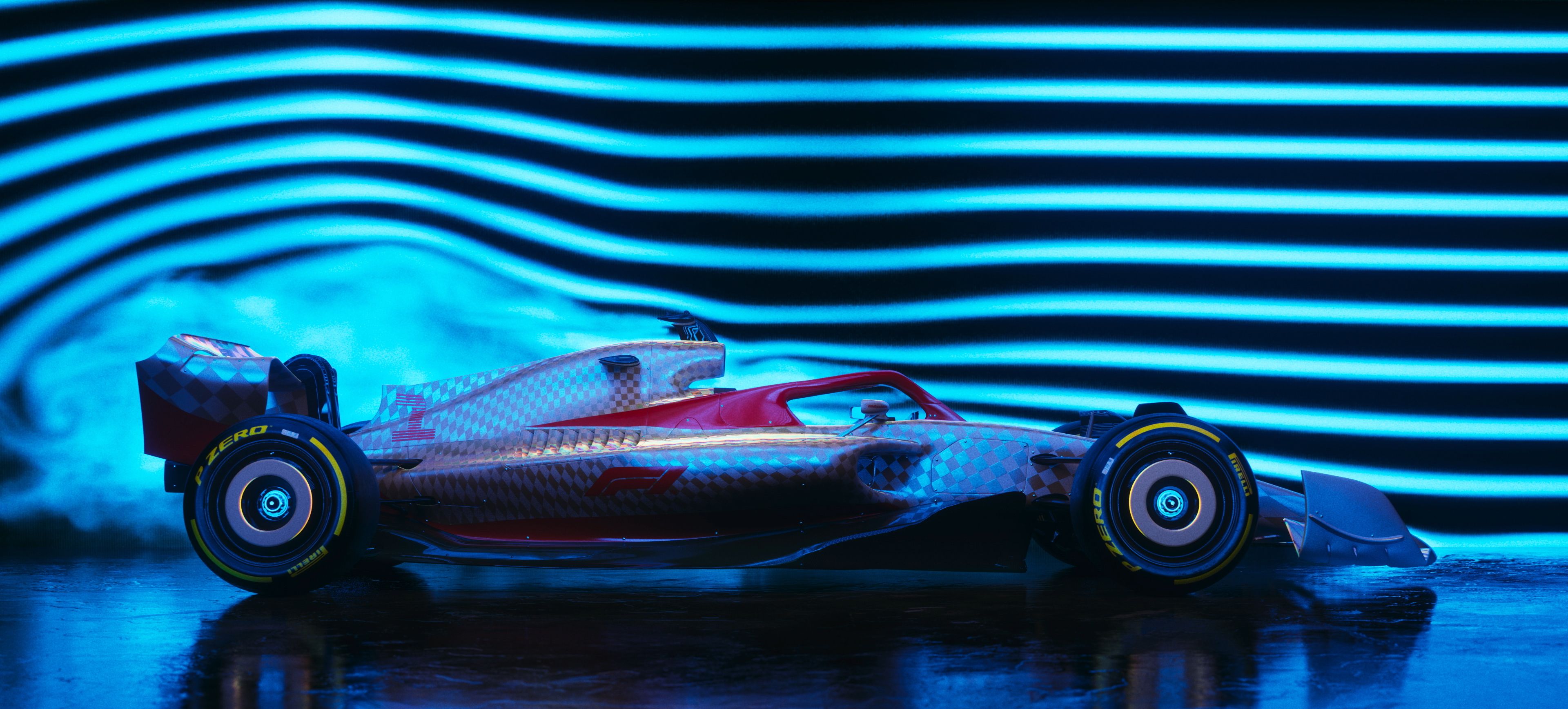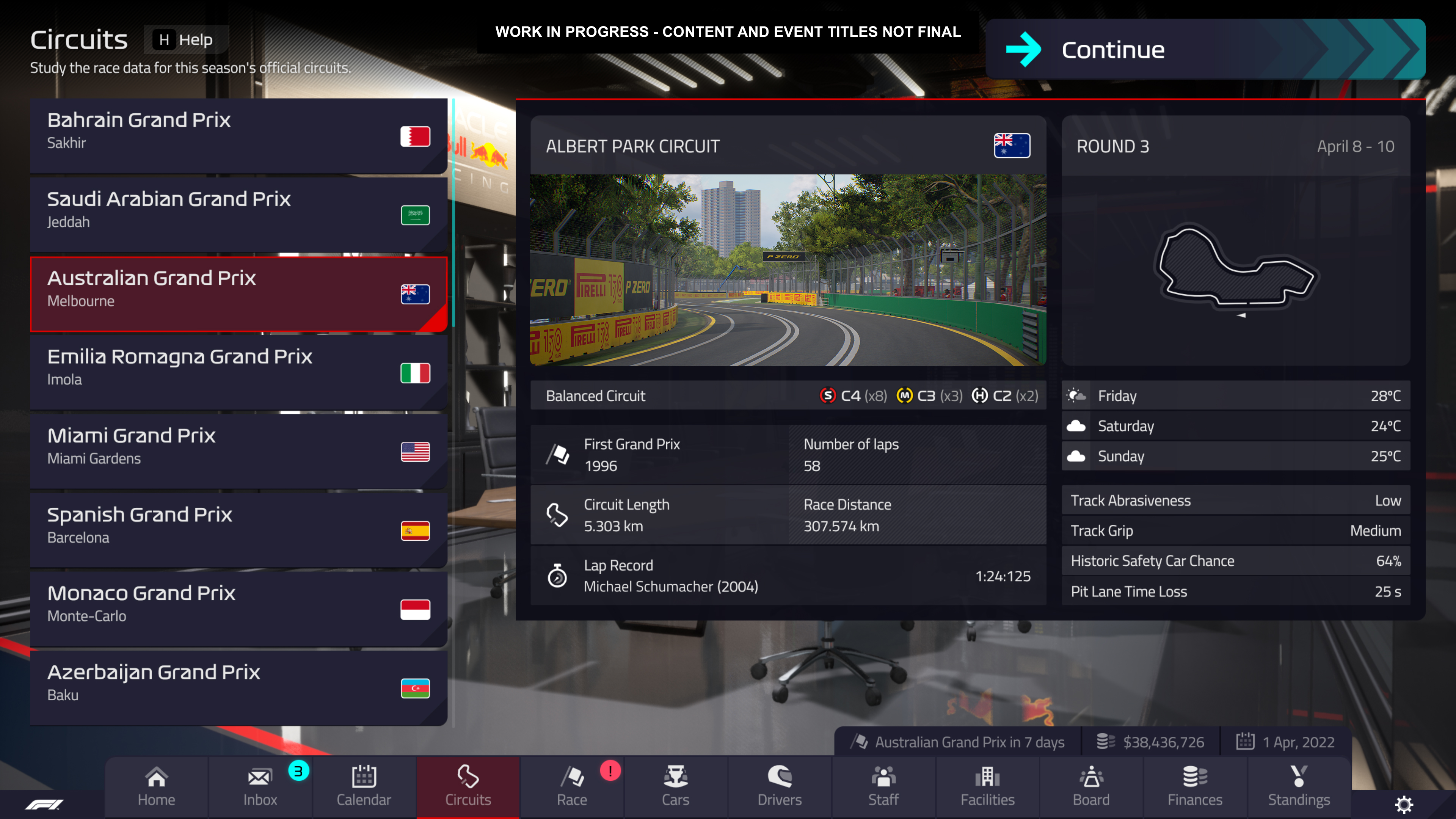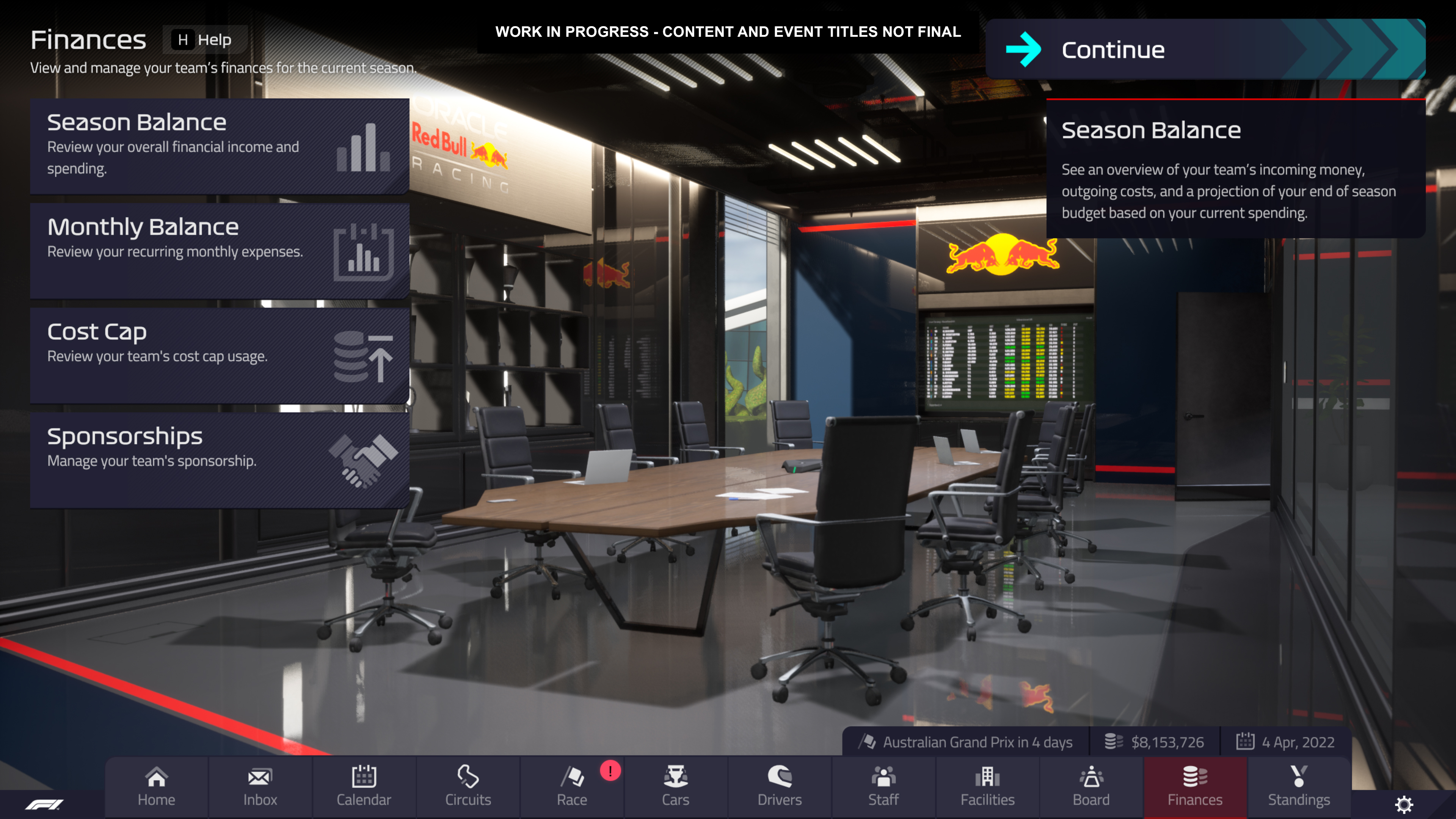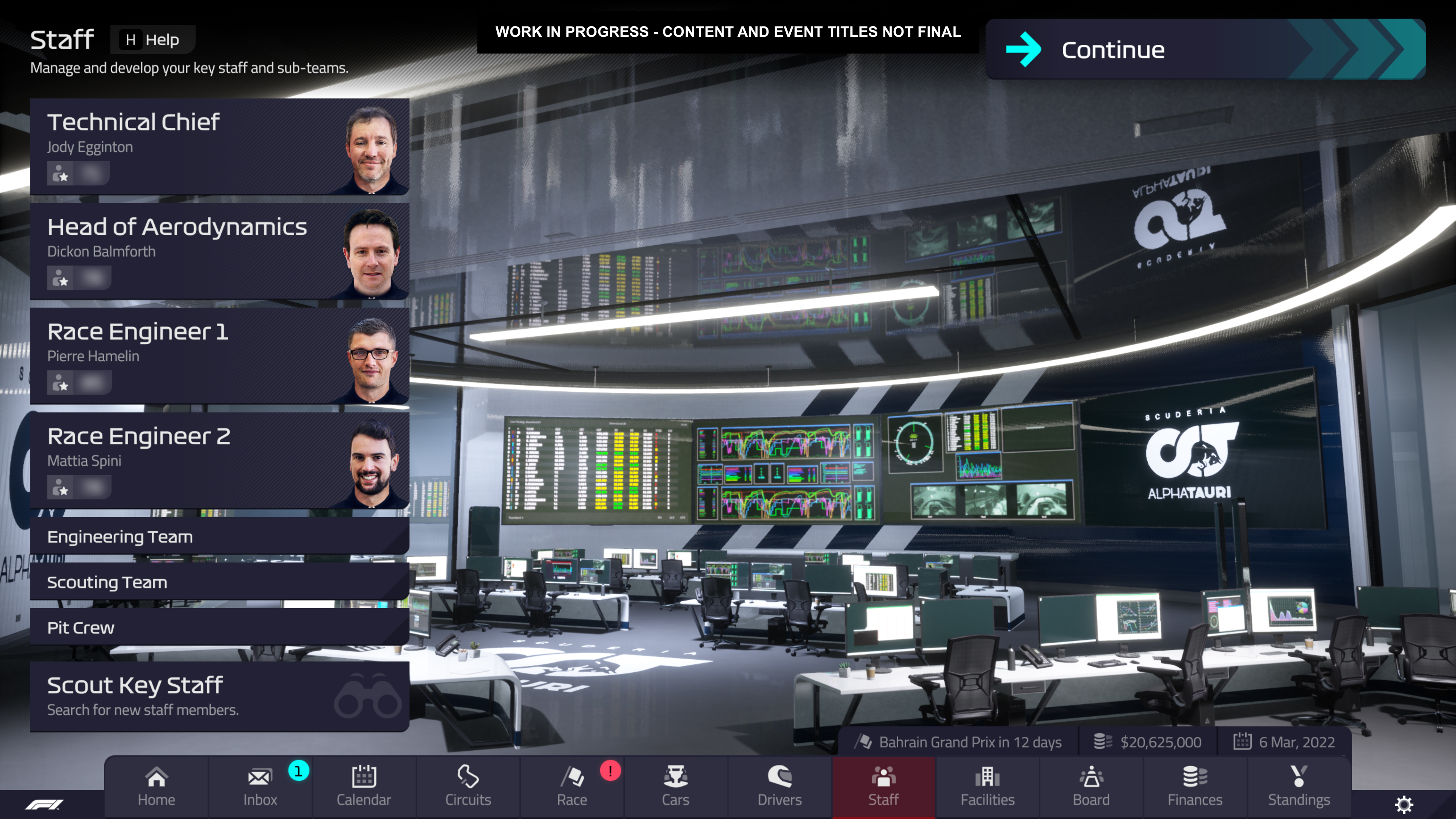F1 Manager 2022 simulates the sport, not the press circus
Frontier steers clear of politicking in its licensed team principal sim.

First things first: no, you can’t go storming off to race control to argue your case in F1 Manager 2022. This isn’t quite the sport as it is, but the sport as it might be—races and championships in Frontier’s debut licensed title are decided strategically, not politically. That’s a big distinction, because the star of the show in modern F1, for better or worse, has been bureaucracy. The on-track action has been fierce. Overtakes and collisions shaped the 2021 drivers’ championship in a manner that Netflix producers must have been veritably dribbling over.
But it was the political fallout after all of these incidents that seemed to overshadow everything else. Heads rolled at race control, radio messages were memed into utter abstraction, and when the dust settled, it felt like the championship had been decided by team principals playing lawyers, waggling rulebooks around and arguing preposterous interpretations.

Newer fans might be wondering what a team principal even does, if not berating Michael Masi in very public, televised radio communications or insulting their contemporaries at other teams. The answer, as F1 Manager 2022 comprehensively demonstrates, is: a lot.
You’re in charge of both the car’s development, and the team’s. You’re assigning people to work on a new front wing, but also managing the facilities that those front wing designers work within. If you don’t have a state of the art wind tunnel to test your theoretical designs in, you’re probably not getting many purple sectors.
That level of control splits the game structurally into two distinct components. The first is a set of menus covering all aspects of the team itself day to day, from R&D to sponsor agreements, staff assignments to emails. The other is TV-syle event coverage with a strategic layer for planning and monitoring tire stints and radio comms between you and the drivers which allow you to control their pace and react to emerging situations like safety cars and weather changes.
As a Motorsport Manager player with several hundred hours of skin in the game, that structural layout’s immediately familiar to me. It speaks to what a stellar job Playsport Games did with its 2017 PC release that Frontier’s game has obviously taken a few cues from it.

There are two major differences, of course. The first is a fully 3D, high detail depiction of racing. It doesn’t go supersoft-to-supersoft with Codemasters’ gorgeous F1 2021 for outright fidelity, scaling down the lighting complexity and poly counts and not featuring anything like the same realistic AI behaviour. But it looks convincing as TV-style coverage, bolstered by the Sky Sports commentary team chipping in at key moments and, in my personal favourite touch, real race radio between the drivers and their engineers when you give them an instruction. Call Charles Leclerc into the pits and you’ll hear Xavier Marcos Padros putting the instruction out, then Charles’ succinct “copy”. A small touch, but one that makes the most of that official license and conveys that Frontier knows how much fans revel in even incidental authenticity.
Keep up to date with the most important stories and the best deals, as picked by the PC Gamer team.
The build I saw was WIP, featuring some 2021 car designs and liveries, and a floaty animation style as the car moves over the track surface. The former of these will certainly be addressed in time for release; whether the latter can be addressed to produce a more convincing sense of suspension at work remains to be seen.
The official license itself is the second major departure from Motorsport Manager, and given FOM’s historically heavy handed approach to moderating licensed content, one suspects that’s the reason for the absence of Crusader Kings-esque court intrigue. As gratifying as it may have been to build up favour with the press, undermine a rival team principal’s credibility or earn influence with race control, it’s probably not an aspect of the sport the license holder wants to emphasise.

During the racing at Albert Park I saw in an offline gameplay demo, the two Ferraris of Leclerc and Sainz wrestled to work their way through Perez in P2 and then use the free track in front of them to chip away Verstappen’s lead. It was immediately clear how evident your commands are in each driver’s actions. In the olden days when EA was the last to have a crack at licensed F1 management (released in 2000, it was aptly named F1 Manager) you’d watch in furious bafflement as Giancarlo Fisichella moved along at the same trundle whether or not you asked him to risk it all or conserve his tires. Here, it appears, there’a a much wider gamut of pace and AI decision-making between the different pace levels you can assign to drivers.
This being a management game, in the end it all comes down to resources. There are two chiefly important ones here: money, and tire life. It takes vast sums to keep any F1 operation ticking over, so securing lucrative sponsorship contracts and meeting board performance targets to secure higher funding levels is vital to moving up through the ranks and fighting for wins—or, indeed, staying at the top. In the shorter term, being kind to tires and effectively managing their wear keeps your pace high across the full race and minimises pit stops, earning back a chunk of time on other cars who might have the pace advantage on paper.
That proposition probably won’t be bringing in the F1-agnostic players in their droves, but it’s truly exciting to have a studio as experienced as Frontier at the helm of this one. Just like Football Manager, it’ll only get dangerously absorbing once you’re a few seasons in, and we’ve yet to see how regulation changes, silly season driver moves and the like change the complexion of the sport over time. I'll have to reserve judgment until that point, but at this early stage it’s encouraging just to see that the minute details of tire deg and front wing airflow are really at the heart of being a good virtual team principal.
Phil 'the face' Iwaniuk used to work in magazines. Now he wanders the earth, stopping passers-by to tell them about PC games he remembers from 1998 until their polite smiles turn cold. He also makes ads. Veteran hardware smasher and game botherer of PC Format, Official PlayStation Magazine, PCGamesN, Guardian, Eurogamer, IGN, VG247, and What Gramophone? He won an award once, but he doesn't like to go on about it.
You can get rid of 'the face' bit if you like.
No -Ed.


